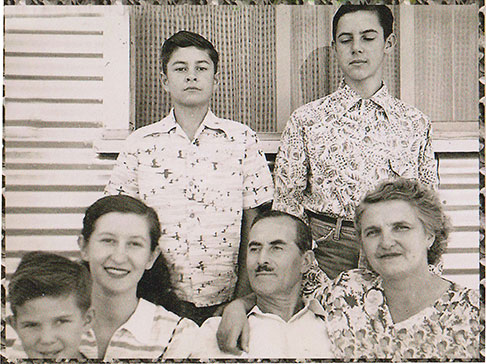Forebearers
Danilo Matulić, 1899-1950. The Croatian ć was changed to ch in America to preserve the proper pronunciation of the name. Danilo was born In Postira on the island Brač. He was the youngest of twelve children of Juraj “Zorzi” Matulić and Marietta Škarić. Danilo’s formal education was limited to 7 years of school, but he was a self-made individual who never stopped learning. As a civil servant executive, he exhibited skilled leadership and organizational abilities. He was fluent in Croatian, Italian, and German, and when he arrived in the refugee camp in Egypt, he soon gained proficiency in English. He was quickly hired by the military camp caretakers, i.e. the US Army, to take charge of the office registering and maintaining records of new refugee arrivals, and handling business affairs between the refugees and their caretakers.
When his family arrived in Sacramento, Danilo started work as a common laborer digging drainage ditches on construction sites, but he soon demonstrated his skill with concrete work, carpentry, plumbing, painting, and other building trades. Within three years he saved enough to buy a small farm on which he built a modest home. Less than four years after arriving in America, Danilo died, leaving his family with a home mortgage and no income.
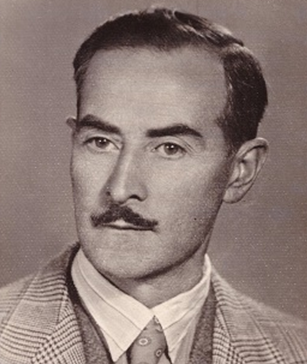
Danilo, second from right, as director of the postal garage and his staff with the car he built by hand. Photo dates to approximately 1937 or 1938 in Split, Croatia. Danilo used bicycle wheels for the car. No other data about the car are available.
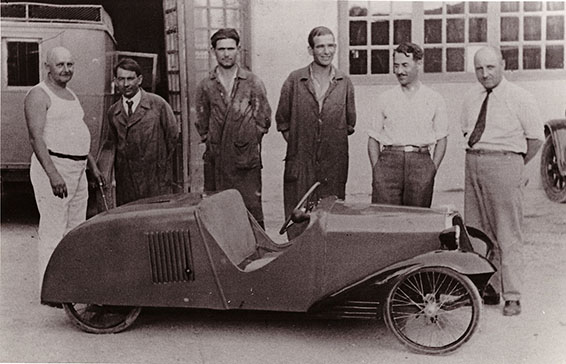
After building the first car, Danilo decided that the postal garage needed a vehicle and this car was built by the garage staff. Autos in Croatia drive on the right with driver on the left so placing the steering wheel on the right must have been necessary to handle postal functions for which the car was intended.
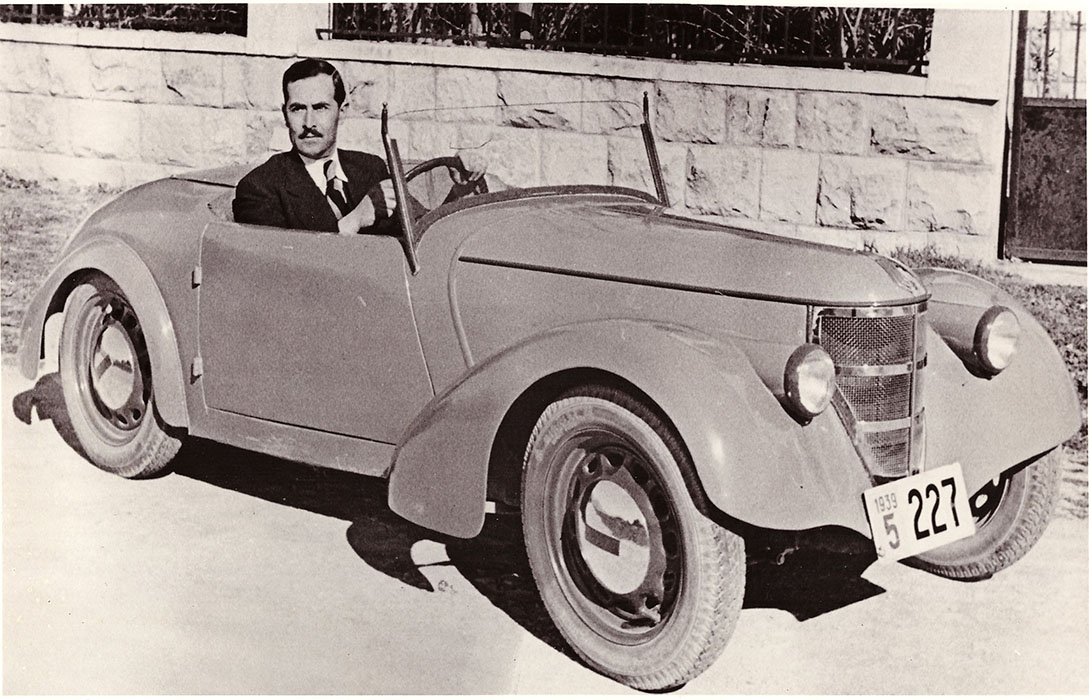
These car photos are from 1939 as seen on the license plate. Danilo was then promoted to director of postal garages for all of Yugoslavia and moved to Serbia for the new position.
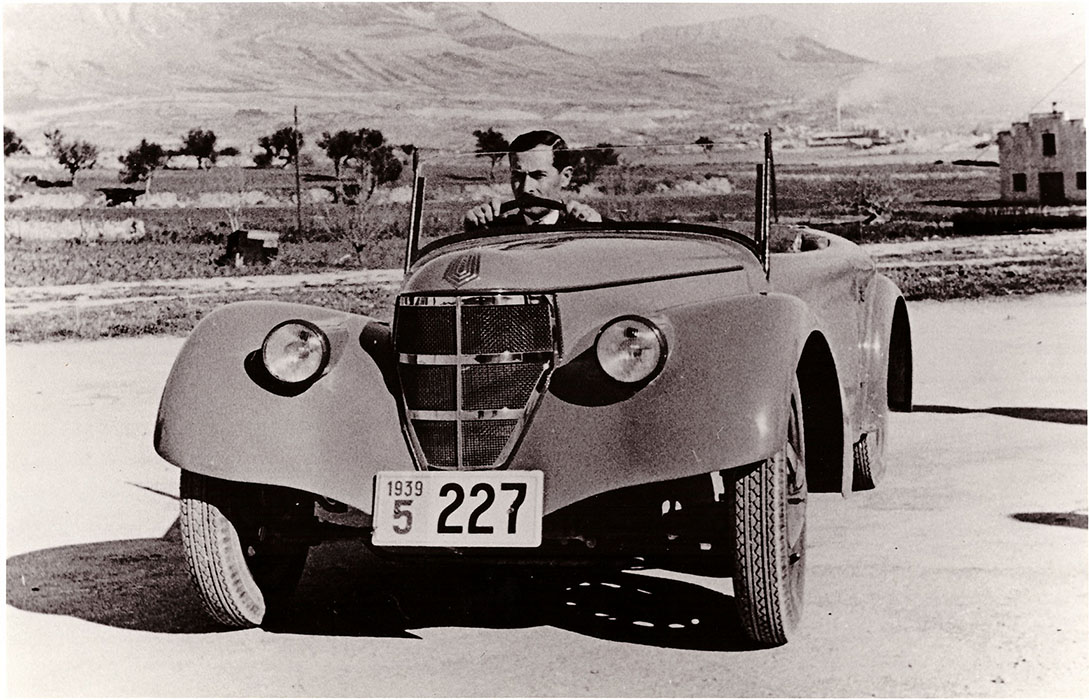
Danilo and Josephine engagement photo.
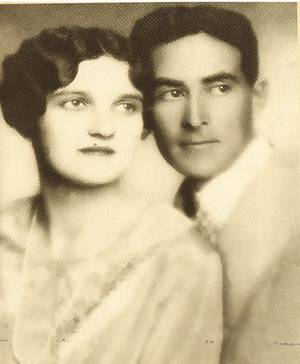
Josephine (Schuster) Matulich, 1907-1998. was the older of two daughters of Josip Schuster and Josefina Gebhardt. Her parents settled in Gospić in the Lika region of former Yugoslavia while it was still under Austria-Hungary rule. Josip Schuster was an engineer who designed and built most of the bridges in the region, some of which are still in use. Danilo was one of his employees. Josephine was married to Danilo in 1927.
Josephine worked hard with Danilo to develop their farm for egg production, but she also milked a cow and raised a vegetable garden. With the death of her husband less than four years after arriving in America, Josephine managed to keep the small family farm in operation by selling milk, butter, and vegetables to neighbors and eggs to a small family grocery store nearby. Her youngest son was only four years old, and the older boys worked after school to supplement their meager family income. Despite several years of serious poverty and hardships, Josephine ensured that her children completed their high school education.

Matulich family in 1936. Milan, Josephine, Serge, Irene, and Danilo.
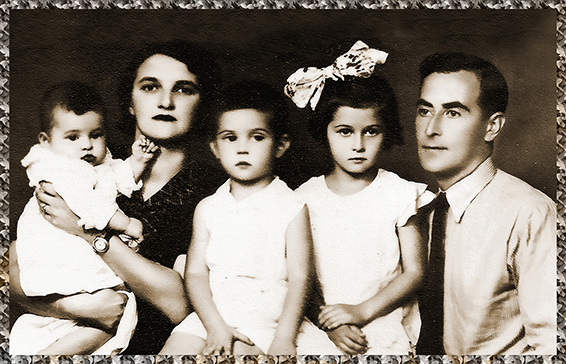
Matulich family in 1950, in front of house Danilo built on their 1-acre farm. Daniel, 4 years old, was born in the refugee camp in Egypt. Irene was pregnant and Danilo showed signs of illness. Ten days after Irene’s first baby was born Danilo died.
